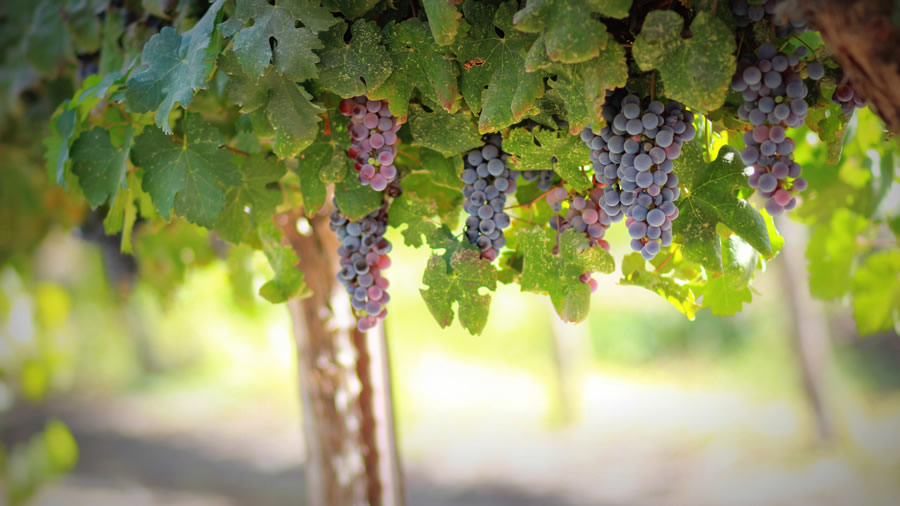
Thirtieth Sunday in Ordinary Time - Ex 22:20-26; 1 Thes 1:5c-10; Mt 22:34-40
10-29-2023Weekly ReflectionThe Faithful DiscipleGROW: Sometimes I stop paying attention to the news for a period of time. There seems to be little that’s “new” in the daily barrage of natural disasters and the countless ways we humans hurt each other. I’ve even stopped using social media, which at least made me smile when seeing photos of friends and family welcoming little ones or celebrating big milestones. Which brings me to today’s Gospel: Sometimes it seems overwhelming to want to love as Christ commands, and I feel that there’s little, if anything, I can do for people outside of my social circle, let alone on the opposite side of the world. Hearing of my struggles with compassion fatigue, a friend recently reminded me of some wise words that have been attributed to St. Mother Teresa: “Never worry about numbers. Help one person at a time and always start with the person nearest you.” We love as Christ commands by willing the good of the other. And it is not trite or cliché to say at times, “honestly, all I can do right now is pray.” After all, as the Lord says, “If he cries out to me, I will hear him; for I am compassionate.” When our compassion is exhausted, let the Lord carry it, for he never tires. And then, when it is possible, practical, and seems to be inspired by the Holy Spirit, we can do more – whatever that may be.
READ MORE
Twenty-ninth Sunday in Ordinary Time - Is 45:1, 4-6, 1 Thes 1:1-5b, Mt 22:15-21
10-22-2023Weekly ReflectionThe Faithful DiscipleGROW: It strikes me that our readings today are about “belonging.” It may seem like a simple concept, but in practice its meaning and ramifications run deep. Picture a young child coming home after a day at school or childcare: He or she may even audibly let out a sigh of relief at the familiar surroundings, the presence of Mom and/or Dad, and all that they hold dear. Is it so different for us? We are God’s, we belong to him. In the first reading God tells Cyrus, “I have called you by your name.” And Jesus says to repay “to God what belongs to God.” How do we do that? We, who have been called by name by virtue of our baptism, do this by putting God first in our lives. By loving God with all our heart, soul, and mind. And by giving him not the leftovers, but the first fruits of our talents, our treasure, and our time. Spend some time in prayer with God today and listen to the words he writes upon your heart.
READ MORE
Twenty-eighth Sunday in Ordinary Time - Is 25:6-10a; Phil 4:12-14, 19-20; Mt 22:1-14
10-15-2023Weekly ReflectionThe Faithful DiscipleGROW: I have about 75 first cousins (yes, really!), so I grew up accustomed to large gatherings. “Feasts” in our family were almost an everyday kind of thing. So you can imagine my initial reaction to today’s parable: Why would anyone refuse such a grand invitation? Who doesn’t love a feast? As we know, however, with parables, Jesus is giving us a message that is deeper than it first appears. Today he uses the image of a wedding feast to explain God’s abundant generosity, and the indifference or outright refusal this loving generosity is often met with. Yes, we enjoy sharing food with family and friends, but are we always gracious recipients of God’s love and bounty? Are we prepared, and properly disposed, to receive it? (Think of the graces we receive in the sacraments, especially confession.) The kingdom of heaven is the banquet to which we are all invited, and too often we can become busy with our material lives and not notice this ongoing invitation. Or we push it out of our minds, or gad about in the wrong garments (of sin, and not grace). Let us open our ears and our hearts to God’s loving invitation, strive to be holy people, and share this gift with those around us.
READ MORE
Twenty-seventh Sunday in Ordinary Time - Is 5:1-7; Phil 4:6-9; Mt 21:33-43
10-08-2023Weekly ReflectionThe Faithful DiscipleGROW: Vineyards were important to the socio-economic structure and well-being of the ancient near east peoples. It would be disastrous for someone to plant and then cultivate a vineyard only for it to be overrun by wild grapes. It would have to be destroyed in order for it to be replanted and recover, which would be financially impossible for most people of that era. So when Isaiah prophesies about God’s plan for his vineyard – that is, his people, Israel – it is attention-worthy for its radical nature. Isaiah says that even with all of the Lord’s care and cultivation, his people have failed to grow, and they have devolved into idolatry and disobedience. So the Lord will bring his vineyard to ruin. Here’s the good news contained (but unspoken in these verses) in that prophecy, however: The Lord will “start over,” with a new covenant. And the Word which he sends forth in his Son will be the vine from which all other branches will arise and flourish. Though he will be killed for his message as prophets and messengers before him were, the Son in his victory over death will be the one who gives us the inheritance other tenants have sought. As Jesus himself says in today’s Gospel “the stone that the builders rejected has become the cornerstone.” And on this cornerstone is built our salvation.
READ MORE
Twenty-sixth Sunday in Ordinary Time - Ez 18:25-28; Phil 2:1-11; Mt 21:28-32
10-01-2023Weekly ReflectionThe Faithful DiscipleGROW: I used to be something of a sugar fiend. So much so that one birthday, my then boyfriend (now husband) decided to forego flowers and bought me a jumbo-sized bag of Smarties candies instead. While I loved sugar, I eventually decided I didn’t love how it made me feel. Now older and wiser, I reach for vegetables more often. It’s not that I crave carrots, but I feel better eating healthy foods. It’s what God intends for my body. Similarly, God intends for our souls to follow the laws he has ordained. But sometimes life gets tough and we suffer terrible wrongs or are grieving, and we feel like the Israelites in today’s first reading, calling out, “The Lord’s way is not fair!” Well, thank God for that! How lost would we be, if God treated us “fairly.” Instead, he treats us with love and mercy; with justice. “He humbled himself, becoming obedient to the point of death, even death on a cross,” for us. If there is any encouragement in Christ, as Paul says, and we know there is, then being of the same mind and heart – attitude – of Christ, gets us through those moments of “unfair!” And we can follow Christ’s commands, knowing he loves us more than anyone else could love us, and more than we can ever love him.
READ MORE